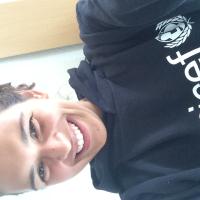
“I don’t care if you know things! I want you to understand them!” That is what my anatomy university lecturer told us in one of our last lectures before exams. This sentence has struck me and has provoked some critical thinking about the structure of the subject that I am studying and the value of assessments.
I started studying medicine last October and have completed my first stressful and, at the same time, exciting semester. I had to adjust to university structures and processes, while being overwhelmed with information from a whole range of different subjects; Physics, Chemistry, Biology, Histology, Terminology and obviously Anatomy.
While I really enjoyed the lectures and courses, I did not really feel comfortable. I often felt very alien among the other students (we are about 350 in total) as I noticed that I had a totally different life-style and way of preparing for my studies. I often felt out of place when people only talked about how, how long and what they had studied the night before. They compared the quantities of vocab-words that they had memorised, the hours they had spent in the library, the pages they had read, etc. Some students have relinquished their hobbies, others have finished relationships and dedicated their whole life to their studies. Above that, there is also a lot of competition between the students. It seems that everyone wants to be the best. It is so extreme that students spread false information about courses, share handouts and study cards with wrong facts or even rip out pages from books in the library so that the others cannot get the needed information. At the same time, I feel that some have they have a certain arrogance; they do not go to un-compulsory lectures as it is “more effective” to learn from books than to listen to the lecturers that only include “a lot of exam-irrelevant things.” The exam-irrelevant things are references to clinical applications and cross-subject links. I am really shocked by these occurrences and do not understand the motives behind them. I know some people that have started medicine and have then dropped out, just because they could not cope with what feels like an inhumane behaviour.
I prefer learning by experience, visually, by asking questions and by understanding the applications. When I learn I want to understand. I want to learn how my knowledge can be applied in different contexts. Only like this I can sustainably understand the learned facts and see connections. My motto is: study smart not hard. Studying should be fun and enriching not tiring and frustrating! I am one of the students that enjoy creating their own learning-cards, fact sheets and self-tests. I enjoy making notes and drawing graphs. I also lay great importance on a healthy work/study-life balance. I believe that it is crucial to set importance to healthy sleep patterns, healthy food, enough drinking and free time activities to be able to function creatively and effectively; the brain needs breaks and change to be able to function at its best.
Maybe I have developed these attitudes because I was an IB student where the programme also sets great importance to the fostering of certain skills like open-mindedness, being balanced and being inquiring (IB-learner-profile) besides the academic requirements.
In my opinion, a doctor is not necessarily a good doctor when he can preach out all physics and chemistry formulas or name all muscles by heart or can flawlessly list all human tissues. He also has to be able to understand what he is talking about … he has to see links and correlations, even beyond his specialisation. Furthermore, being a doctor is firstly a vocation and secondly a social job. It involves interaction with patients, which presupposes empathy, communication skills (especially when mediating diagnoses), inquiry and the ability to read a patient’s body language. As a patient, I want to feel understood and cared for by my doctor. I do not say that one should not learn. Without knowledge – the facts and figures – there can be no understanding or creativity. We have to know the basics, but then we have the challenge to go beyond that. Isolated facts are useless – we have to link and process them and should never forget about the big picture – the healing of our patients.


